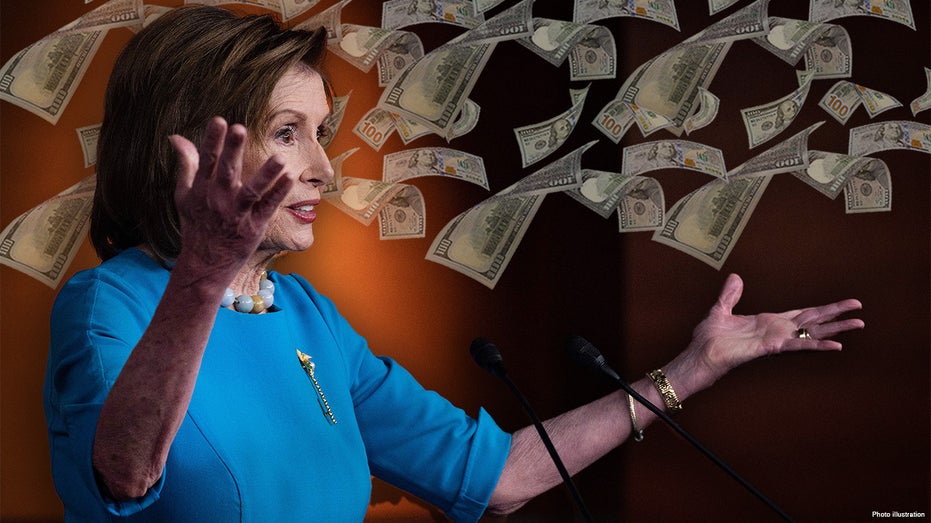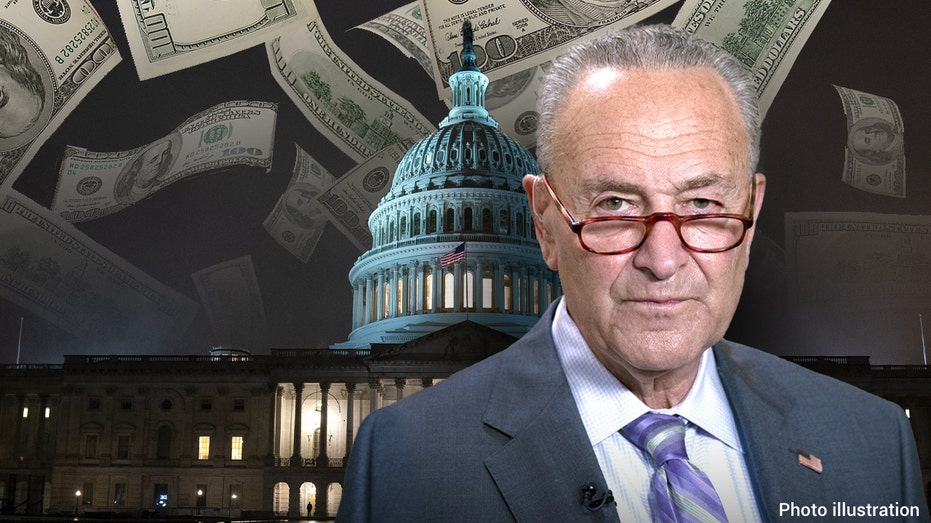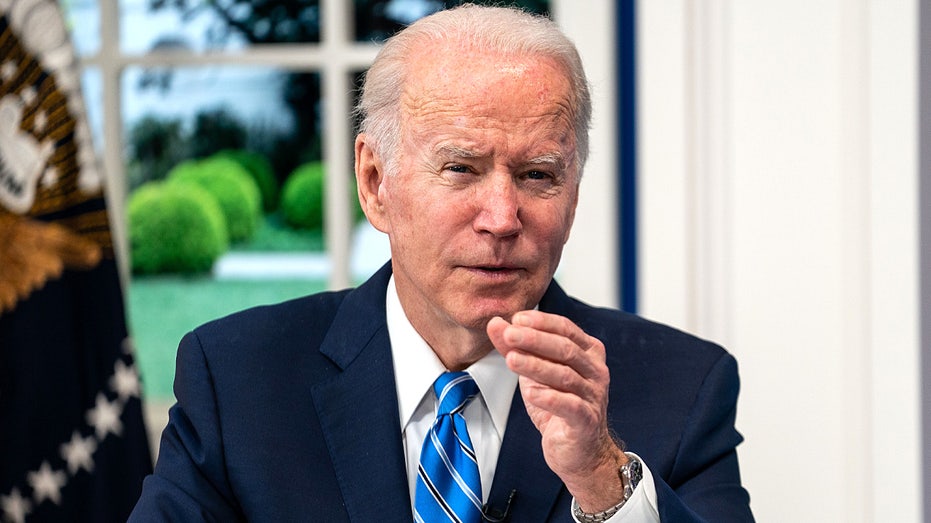Democrats could add $500B in new debt during final weeks of congressional control
Biden is ‘the worst president the country has seen in 100 years’: Rep. Byron Donalds
Rep. Byron Donalds, R-Fla., responds to Florida’s economic growth and Republicans’ potential 2024 candidates.
Democrats are under pressure to pass a range of spending and tax bills in the last few weeks in which they fully control Congress, and could end up approving legislation that adds half a trillion dollars or more to the national debt.
December often finds lawmakers rushing to approve new spending priorities before leaving town for the holidays, and this year, the issues are piling up for Democratic leaders in the House and Senate. Requests from the Biden administration to boost funding for Ukraine and COVID-19 are just part of the equation. Democrats are also mulling whether to give a spending boost to federal agencies, extend current and expiring tax breaks, and increase Medicare reimbursement rates.
Some of these ideas, like extending the tax breaks, will win Republican support; however, none of them are likely to be paid for with spending cuts elsewhere, and that means more national debt.
"I think that’s the most likely scenario," Brandon Arnold, executive vice president at the National Taxpayers Union, told FOX Business.
DEMOCRATS SHUT THEIR EYES TO INFLATIONARY IMPACT OF BIDEN'S BIG SPENDING BILLS
Speaker of the House Nancy Pelosi is expected to oversee one last rush of bills that could expand the national debt by hundreds of billions of dollars. (Photo by Jim WATSON / AFP) Arnold said his group has recommended spending offsets to pay for new spending programs or revenue the federal government would not get if it extends tax breaks further into the future. However, he said the tight timeline before the end of the year means there is little time to debate how to do it. "Offsets are hard, and when you’re talking about compressing all the work, the hard stuff usually gets left off," Arnold said. He said that despite his group’s efforts, "I don’t think there’s a chance" that spending offsets will accompany new spending. Leaders from both parties in the House and Senate declined to comment to FOX Business about the possibility of cutting spending anywhere in the budget to pay for new priorities. That is about the same response that the Committee for a Responsible Federal Budget (CRFB) has received as it works to keep the $31.3 trillion national debt from exploding even higher. "Nobody has brought it up," Maya MacGuineas, president of CRFB, told FOX Business when asked about her efforts to win support for spending cuts. BIDEN ON PACE FOR $1 TRILLION BUDGET DEFICIT IN 2023: $2.7 BILLION IN NEW DEBT PER DAY Senate Minority Leader Chuck Schumer will need to find Republican votes if he expects to pass legislation increasing spending, but will likely find some GOP support for extending certain tax breaks. (Photographer: Stefani Reynolds/Bloomberg via Getty Images / Getty Images) She noted that while extending tax cuts will get support from Republicans, those cuts will require more federal borrowing unless they are matched with spending cuts. "No matter what the purpose, whether new spending is the most worthy purpose or not, the debt is the debt," she said. "And once you have a pile of it, it still has the same negative consequences as any other piece of the debt." Extending tax breaks that will begin to expire next year or have already begun to be phased out are a big piece of the puzzle for Democrats. Senate Finance Committee Chairman Ron Wyden, D-Ore., has talked openly about finding a way to expand the child tax credit, which grew from $1,000 to $2,000 under President Trump and temporarily increased again to as much as $3,600 under President Biden. Wyden signaled Democrats could live with something less than a $3,600 tax credit, but CRFB said some kind of extension, along with an extension of a more generous Earned Income Tax Credit for lower-income workers, could create a one-year cost $145 billion. To get that done, Democrats could float the idea of extended business tax breaks to win Republican support. Three of these breaks have either expired or will soon begin to expire: the ability to immediately write off R&D expenses, fully deduct net interest from taxes, and bonus depreciation, which currently allows companies to immediately deduct 100% of their investment in certain assets. CRFB estimates it could cost another $95 billion to make this change for one year. MORE SPENDING: CONGRESS FACES MULTIBILLION-DOLLAR MEDICARE FIX WHEN IT RETURNS AFTER MIDTERMS Republicans have argued that lower taxes will result in more economic activity that helps refill depleted federal coffers, and that tax cuts should be assessed using dynamic scoring. However, experts anticipate that the cost of most of these tax extensions will still far outweigh the revenue they generate. President Biden has asked Congress for $10 billion in COVID funding and $37.7 billion for Ukraine. (Kent Nishimura / Los Angeles Times via Getty Images / Getty Images) One exception would be extending 100% bonus depreciation, a move that the Tax Foundation estimates would boost GDP by nearly 1%, but still cost the $10 billion in revenue. Another issue that might find bipartisan agreement is whether to prevent a scheduled drop in reimbursements rates for services provided under Medicare. Medical groups have warned that services will dry up for seniors unless Congress finds money to avoid this cut to reimbursement rates, and CRFB says that change could mean $150 billion in more borrowing in the first year alone. Other bills are more likely to be challenged by Republicans. The Biden administration this month asked congressional leaders for another $37.7 billion in funding for Ukraine, which could draw some GOP scrutiny. The administration also wants another $10 billion in funding for COVID, which has already drawn GOP complaints, especially after Biden said the pandemic is "over." CLICK HERE TO GET THE FOX BUSINESS APP Finally, Democrats could push for a broad expansion of federal funding as they consider a spending bill for the rest of FY 2023. Discretionary funding expires on Dec. 16, and while a full-year bill may be delayed, Democrats have signaled in legislation that they could seek more funding for federal agencies – CRFB notes one Democratic proposal would cost another $65 billion. Source: Read Full Article



